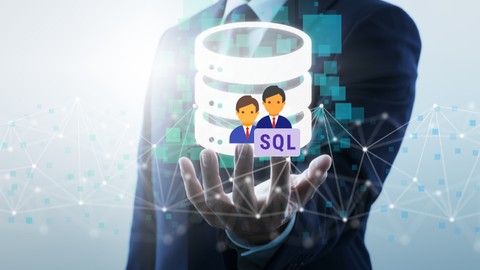Description
This course has been designed to give you the knowledge and skills to become an expert SQL Server Database Administrator.
If you want to become a SQL database administrator, then this is the course for you.
Here is the course outline:
Section 1 – Introduction
- Introduction
- What is SQL Server
Section 2 – Setting Up Your Environment
- SQL Server Editions
- Installing SQL Server 2022
- Install Management Studio
- SQL Server Configuration Manager
- Working With SQL Server in Docker
Section 3 – Database Creation & Configuration
- SQL Server System Databases
- Database Storage Strategies
- Capacity and growth considerations
- Configuring Model Database
- Creating a Database
- SQL Server contained database
Section 4 – Securing Your SQL Server
- Managing Users & Login
- Managing Contained Users
- Implementing Instance-Level Security
- Implementing Database-Level Security
- SQL Server Audit Specifications
- Configuring Server and Database Audit
- Data Discovery & Classification
- SQL Vulnerability Assessment
Section 5: Backup & Restore
- Introduction to Backup and Restore
- Understanding Recovery Models
- How to Perform Full Backups
- How to Perform a Differential Backup
- Transaction log backups
- Performing Recovery
- Backup Strategies
Section 6: Automating Maintenance Routines
- What is SQL Server Job Agent
- Automating Processes with SQL Server Agent
- Configuring and Sending Database Mail
- Automating database backups
Section 7: Performance & Monitoring
- Reviewing server logs
- Exposing Dynamic Management Views (DMVs)
- Database Console Commands for SQL Server
- SQL Server Activity Monitor
- Indexes for performance tuning
- Introduction to the SQL Server Query Store
Section 7: Migrate & Import Data
- Introduction
- Migrating Databases to Amazon Web Services (AWS)
- Detaching and Attaching Databases to an Instance
- Migrating to Azure and Docker using bacpac archive
- Importing and exporting data
Who this course is for:
- Anyone who wants to start a career in SQL database administration.
- Anyone who wants to have complete SQL database training to get a job in IT
- Anyone who wants to advance his/her career
- College students looking to pursue database administration.
- IT Infrastructure Professionals

